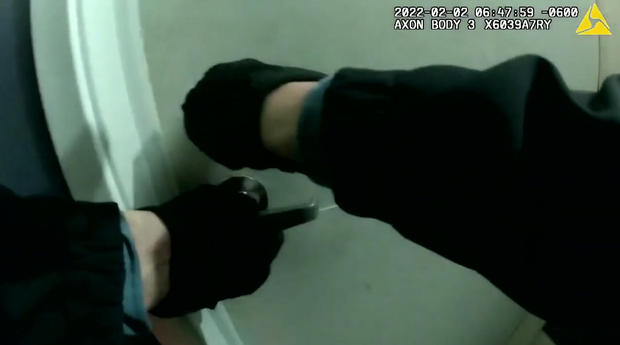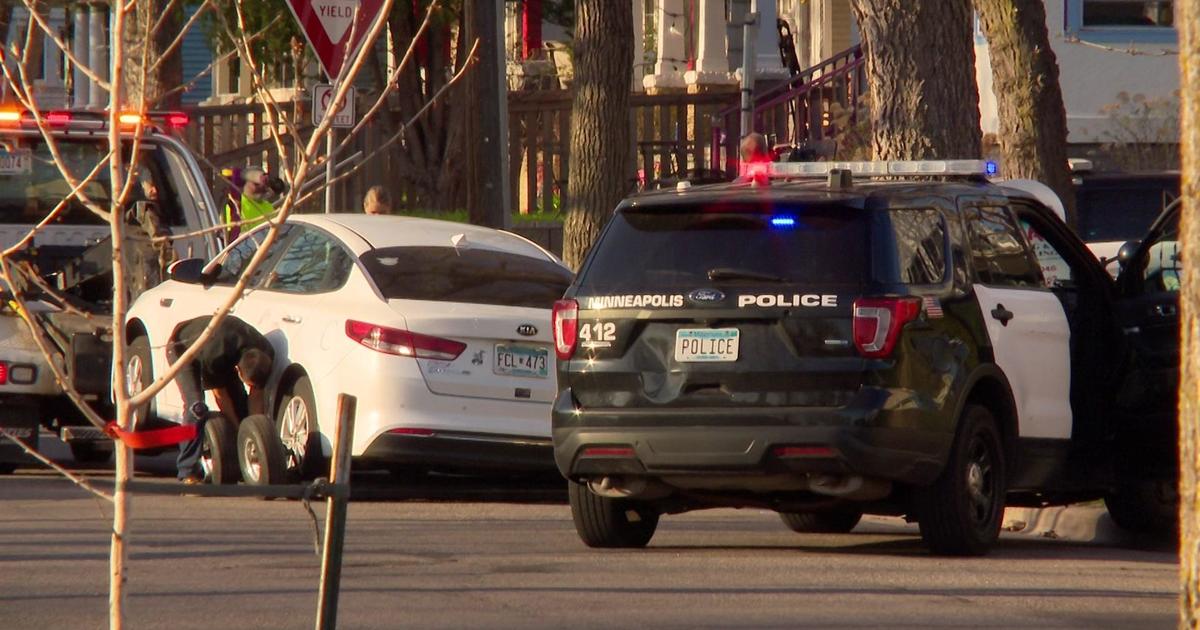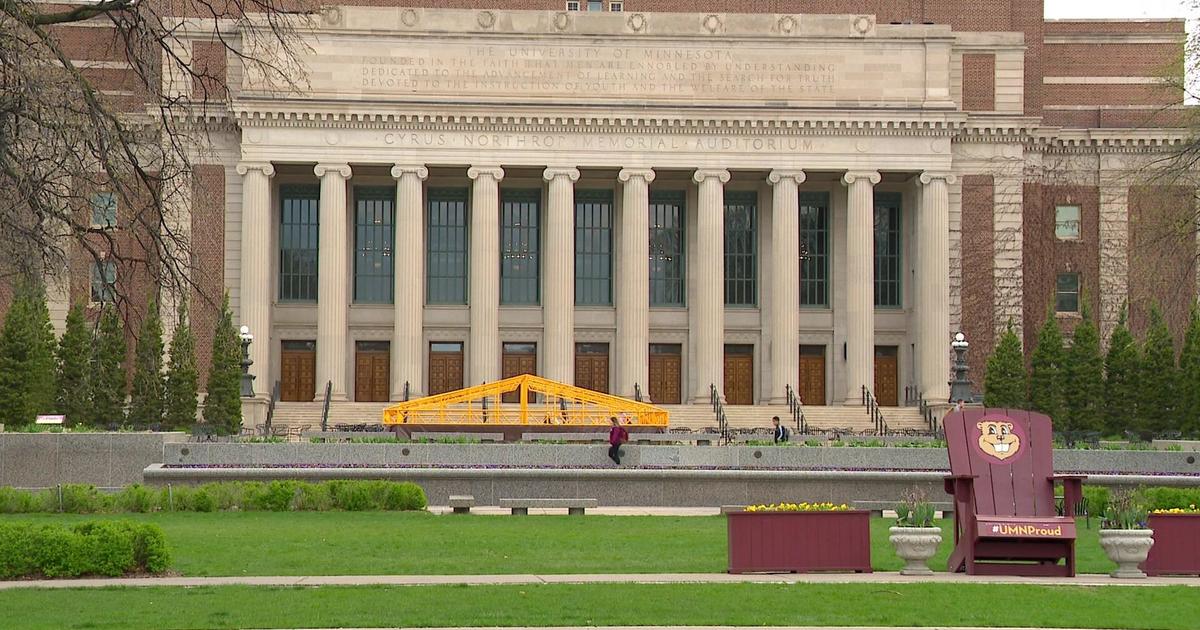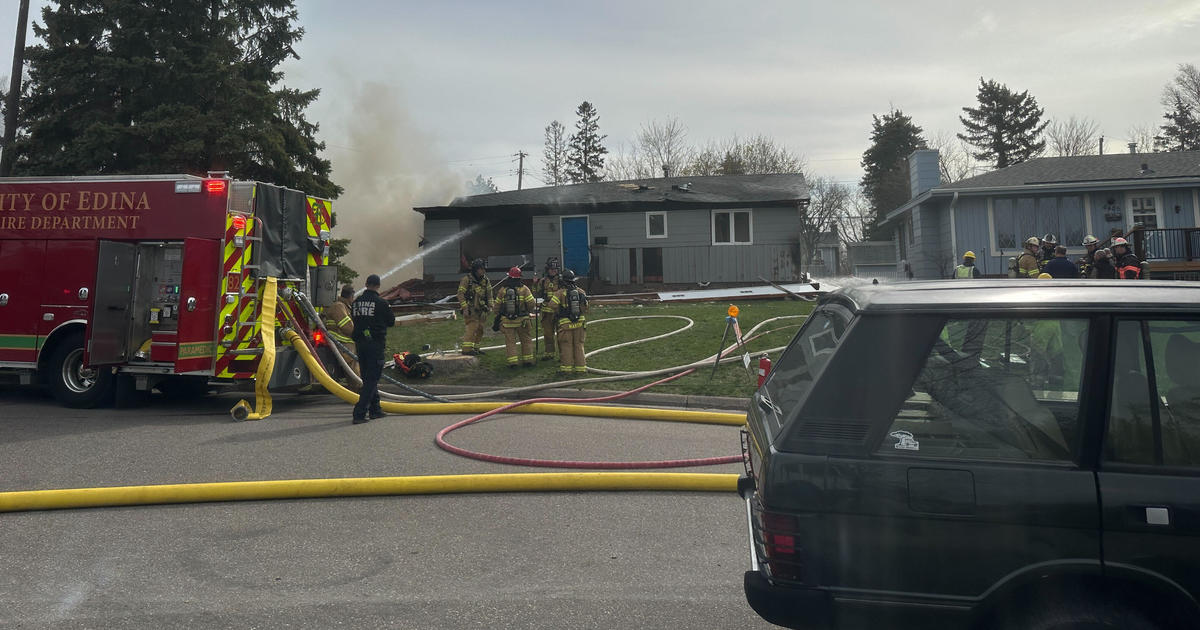Records Show MPD Was Granted 15 'Unannounced Entries' Following Mayor's Ban
MINNEAPOLIS (WCCO) -- The Minneapolis Police Department's use of no-knock search warrants has come under heavy scrutiny since an officer killed Amir Locke during a SWAT raid in early February.
Mayor Jacob Frey has admitted his campaign made incomplete statements about city reforms regarding the warrants.
He clarified his reforms on WCCO earlier this month.
"In November of 2020, we put out a policy that ended the practice of unannounced entry. In other words, officers at that time were required to announce themselves even in the instances of no-knock warrants," Frey said.
But WCCO has discovered that MPD never stopped requesting unannounced entries in their warrant applications. Public records reveal that since Frey's policy change, MPD has been granted 15 warrants for unannounced entries in the city, an average of more than one a month.
Just days after Frey's ban was enacted, officers applied for a "no-knock unannounced search warrant" for a known, violent gang member in a drug investigation.
Last October, while investigating another violent gang member, MPD asked for a "no-knock entry" and later, the application said, "would also like to request an unannounced no-knock search warrant." On the next page of the same application, officers requested "permission to enter without announcing police presence."
An MPD spokesperson says, "investigators used the word 'unannounced' in keeping with the wording provided in the [department] policy and in state statute. The term 'no-knock' was also used is some of the applications. [Our policy] describes 'unannounced' and 'no-knock' as elements of the same type of warrant."
The policy as written in the manual says, "During unannounced entry search warrants, MPD officers shall announce themselves as police."
Ten of the 15 warrants we found requested both "no-knock" and "unannounced entries," which is notable because it seemingly indicates the terms were not being used interchangeably. They often are synonymous in law enforcement, but Frey's policy explicitly marked a distinction between the two by allowing for no-knock warrants, while banning unannounced entries.
An MPD spokesperson said that using both terms "in the same application is redundant but reflects the marriage of the two elements in the language used" in the MPD manual.
"The use of 'no-knock' and 'unannounced' in the same application is redundant but reflects the marriage of the two elements in the language used in [the manual] and in Minnesota law. It is important to note that in the definition, both 'no-knock' and 'no announce' are elements of the same type of warrant in the statute: 'no-knock search warrant' means a search warrant authorizing peace officers to enter certain premises without first knocking and announcing the officer's presence or purpose prior to entering the premises. The current MPD policy governing the tactics used to execute this type of warrant separates the two elements -- knocking and announcing -- requiring announcing before crossing the threshold in most circumstances."
As for the executions of the 15 warrants, MPD says it's reviewed body camera footage of all of them, and in each, officers announced themselves before entering, thus not violating the policy.
WCCO asked to see the body cam video, but were denied due to Minnesota Data Practices law. The department says the applications do not violate policy either.
After the killing of Amir Locke, Frey instituted a moratorium on all no-knock warrants except in circumstances of imminent danger.
Public records show MPD hasn't applied for any no-knock warrants in Minneapolis since then.
Frey's office said in a statement, "The intent of the Nov. 2020 policy was to require officers to announce presence and purpose before entering when executing a no-knock warrant, but it has since been made clear that the policy needs revisions. This is why we are working with subject matter experts, our Civil Rights Department, and community stakeholders to develop a no-knock warrant policy that will be among the most effective nationwide."
With regards to oversight of MPD's warrant execution, Frey's office said, "We are currently working to develop a new no-knock warrant policy that will have additional layers of oversight and approvals. Those new standards will be tailored to the type of warrant requested, time when being executed, and responsive to established risk factors."
MPD also shared its accountability measures before and after executing no-knock warrants:
One of the most important accountability measures is the legal requirement that officers obtain a search warrant signed by a judge in order to search a private residence or business (absent a legal exception). The search warrant application is reviewed by a judge to determine if probable cause exists. The reviewing judge also determines if the information in the application is sufficient to support a no-knock and/or nighttime execution.
Prior to the search warrant being served, potential hazards are evaluated in a risk assessment conducted by SWAT. Hazards include such factors as knowledge of firearms used in the crime or a history of firearm use or possession by known suspects in the location to be searched; dangerous animals; physical fortifications or obstacles; cameras or other surveillance measures; prior interactions with police; and a history of violence. A supervisor is required to be present for all planned search warrant briefings and execution. SWAT officers are required to wear and activate body worn cameras in accordance with the MPD BWC policy. After the warrant is executed, SWAT members complete a supplement for the incident report to document the actions they took. BWC recordings are uploaded with an attached case number. Regular body worn camera audits are in place to monitor compliance with the BWC policy including the activation requirement and supervisors assist in review of incidents flagged for scrutiny by the BWC auditors. Additionally, all BWC video is accessible for use in any OPCR complaint investigation.




